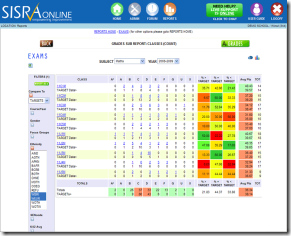The start to a new academic year can leave you stretched. It is all to easy to get embroiled in the hubbub and excitement of it all and regret not pacing yourself, not taking time out to reflect and review what went well and what needs changing next June – Sept. I have determining recorded my thoughts but not yet had time to piece together an amalgam of post notes, sticky notes, emails, and meeting minutes. I may well be a tech enthusiast but there is ‘nowt wrong with old tech when it best fits the situation.
Leadership at the End of Term
in the final weeks of the past academic year the following changes were either discussed or highlighted through possible communications. Perhaps the only exception would be the plan to introduce refine the homework policy, part of an interim project for an aspiring middle leader, which had been discussed at the SLT and Directors of Learning meetings.
- New line management
- New SLT strategic responsibilities shared with all staff .
- A new ‘fixed date’ school calendar, with all faculties given the opportunity to define their curriculum dates, and most importantly, a policy to define these calendaring procedures.
- A clear definition of only two staff CPD events on any given day.
- A new ‘Behaviour for Learning’ policy (BfL) first shared with Directors of Learning and then all staff, including ‘Support on Request’ (SoR)procedures.
- An updated, tighter, uniform policy.
- A rebrand of Student Services to Student Welfare and Support
- A new homework policy
- A significant emphasis on communication through the student planner.
Leadership at the Start of a New Academic Year
With such positive examination results, the Principals introduction first recognised staff, shared a potted highlights and observations from over the summer. Next came the examination review highlighting key data 71% A*-C and 55% with English and Maths, with direct comparisons to FFTD targets (EBAC 11.4%). Next a review of the gender differences and review the key school groups. The principals introduction concluded with a review of almost all of the bullet points outlined above. To conclude the meeting, the new homework policy was explained and formally introduced to all departments.
Communication
 Communication at start of term, in both the SLT and Directors of Learning meetings have been clearly focused on performance analysis and the Behaviour for Learning policy, with uniform seamlessly attaching itself to that conversation. The school has chosen to use SISRA as a data analysis tool and has now internally appointed a SIMs manager. SISRA has become the focus of of my line management, data analysis/performance, conversations. The next step is to empower the Directors of Learning to have the same or similar conversations with their teaching staff. To support this process, I have created a ‘Sharing Feedback’ article and plan to work through this, and our next line meeting.
Communication at start of term, in both the SLT and Directors of Learning meetings have been clearly focused on performance analysis and the Behaviour for Learning policy, with uniform seamlessly attaching itself to that conversation. The school has chosen to use SISRA as a data analysis tool and has now internally appointed a SIMs manager. SISRA has become the focus of of my line management, data analysis/performance, conversations. The next step is to empower the Directors of Learning to have the same or similar conversations with their teaching staff. To support this process, I have created a ‘Sharing Feedback’ article and plan to work through this, and our next line meeting.
Feedback at SLT and Directors of Learning meetings (and Academic Mentor Meetings with students) on the Behaviour for Learning policy has been very positive. Staff have highlighted improvements in class behaviour, fewer disruptions in and around classrooms during lessons and an improvement in the preparation of students for learning. Students in my academic mentor group echo these comments. Where uniform or behaviour has been challenged, parents, guardians and carers also appear very positive. Even where student behaviour has had to be reprimanded.
Very quickly both staff and students have recognised and adopted the colour coded behaviours into their language. Defining green, blue and red behaviours has enabled staff and students to be able to hold a conversation in which they have a ‘shared understanding’ of what is acceptable and not acceptable. It is understandable that most conversations have focus on the unacceptable red behaviours and a few of our well-behaved students would like to see conversations focused on rewards and the consequence of demerits.
I am very keen to visit mentor sessions next week, having held ‘Academic Mentor’ meetings all this week. The planner is our connect to ‘home’ and I am keen to see how successful we are in making connection.
Support on Request
‘Support on Request’ is a subtle change to the ‘on-call’ procedures we had in place last academic year, however I believe is a very important change nevertheless. Instead of students being ‘on-called,’ teaching staff are given rest bite to speak and deal with student behaviour themselves, with the SoR member of staff taking over the teaching, albeit temporarily. In serious red behaviours situations, I have found students have frequently left the class / building or understand the serious of their actions. SoR also presents me with more infrequent conversations, with a wider range of teachers and students, as well as raising the visual profile of SLT (and key staff) within school. If you haven’t used this strategy, I would recommend it.
Observations
The introduction of a range of new policies at Hamble College has been testing for staff and students. Parent, staff and student comments suggest its been positive and I observe we are benefitting from the changes as a school community. Momentum needs to be maintained, there is still a need to communicate and implement the consequences of the ‘demerits’ and demonstrate to students that positive behaviour takes precedence at Hamble College and will be rewarded. These details are on the agenda this coming week. In the meantime, I aim to explain to students that it takes time for ‘significant rewards’ to accrue, to encourage students to ‘stay focused, be motivated’ and ‘know that they count.’
My next professional focus, parents, guardian and carer engagement.
[qr_code_display]
